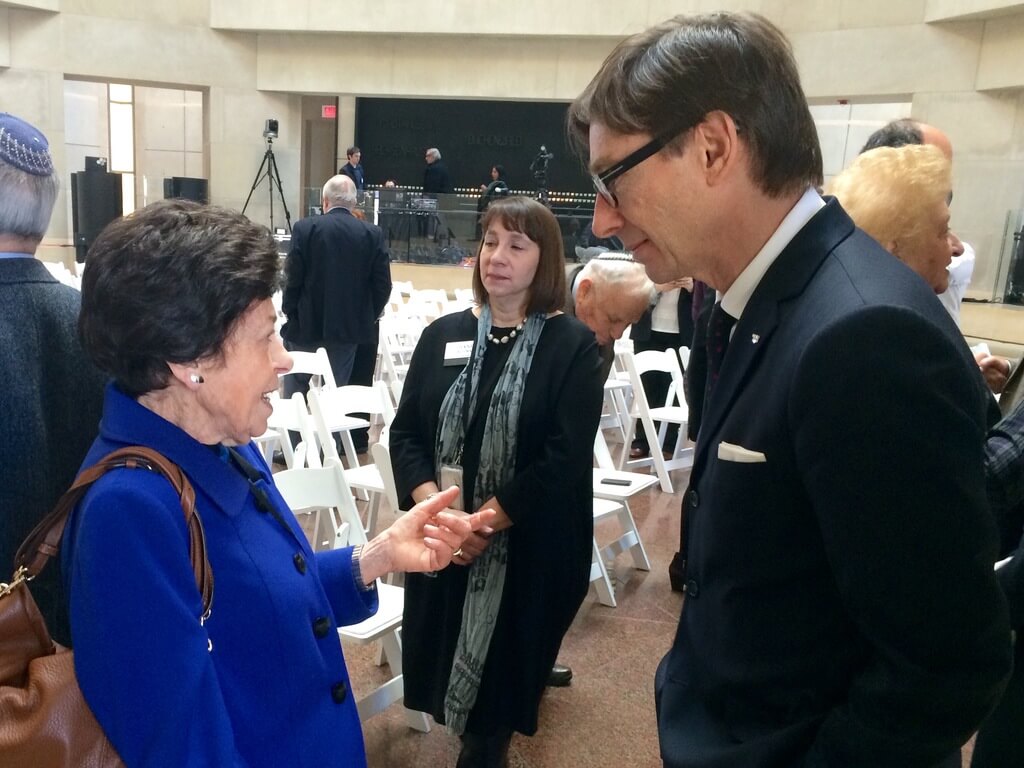WASHINGTON — Three European ambassadors warned against a rise of xenophobic sentiment on the continent at an event Wednesday marking a day of international Holocaust remembrance.
An influx of refugees to France is fueling anti-immigrant sentiment, including calls to close the border and take other measures to keep out people fleeing war-torn countries, said Gérard Araud, the French ambassador to the United States.
The ambassadors convened at the U.S. Holocaust Museum for a panel discussion, commemorating the day Red Army soldiers liberated the Auschwitz concentration camp on Jan. 27, 1945. The current question of whether to accept refugees facing crises in their home countries drew parallels to Europe during World War II, when millions of people sought refuge from bloodshed and the Holocaust.
“Europe has made a huge amount of progress over the past 70 years or so,” said David O’Sullivan, of Ireland, the European Union ambassador to the U.S. “We cannot be complacent in the face of what is happening.”
At an earlier ceremony commemorating the day of remembrance, Holocaust survivor Johanna Neumann, 86, told the story of her Jewish family escaping Germany and going into Albania, where they took refuge in one home after another as the war raged. Neumann and her family were welcomed with “open arms” — never treated as refugees, she said.
Despite the vast size of the refugee crisis in 2016 and the potential risks it poses to Europe, Neumann said she hopes migrants “will be given the opportunity to make a living, to have a dignified existence in the country to which they’re coming.”
Although O’Sullivan hopes European countries can serve as a safe haven, he said the scale of the migration makes it difficult to offer refugees their first-choice destination.
More than 1 million refugees arrived to Europe by way of the Mediterranean Sea last year – nearly half of them from war-torn Syria, according to data from the UN Refugee Agency. There have been more than 46,000 arrivals already this year.
The scale of the migration has caused a logistical challenge, but the EU is working to improve the process through better coordination among the member countries, O’Sullivan said.
Peter Wittig, German ambassador to the U.S., tried to explain European anxiety in the face of a crisis without a clear solution.
“The trouble is we are dealing with a historic, epic, almost Biblical flow of refugees,” he said. “It is a lot in the eyes of the people — because they see no end to it.”
Calling the rising xenophobia a “crisis of Western democracies,” Araud noted a similar anxiety in the U.S. towards immigrants from Syria. In France, an arrival of mostly Muslim immigrants has fueled Islamophobia across the country, the French ambassador said.
In Germany, there have been a series of reports of arsonists targeting refugee centers, according to the Washington Post. France has played host to far-right protests following the November terrorist attacks in Paris. One of the suspects was a Syrian refugee.
“The problem is on the prime-time TV European citizens are seeing every day… the impression of an invasion,” Araud said. “The Syrian crisis is becoming an existential threat and we have to solve it as quickly as possible.”

